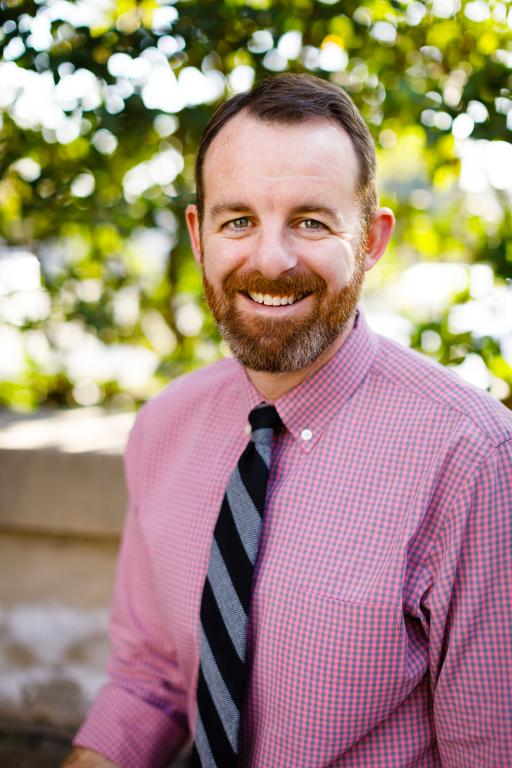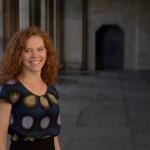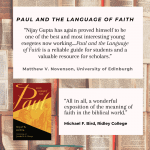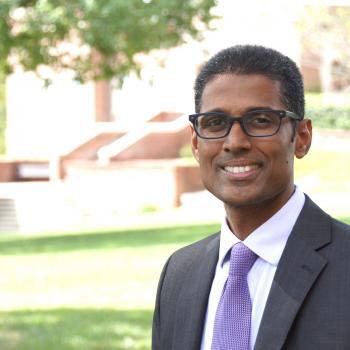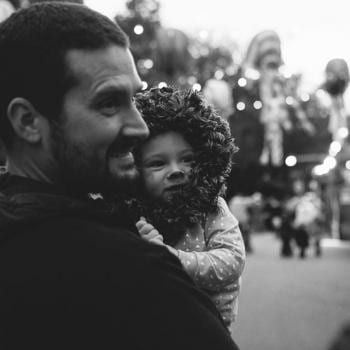This blog series spotlights 50 NT scholars and their research. The goal of this series is to introduce readers to a wider circle of scholarship than they have encountered before. The majority of people on this list are early or mid-career NT scholars who are doing great research and writing.
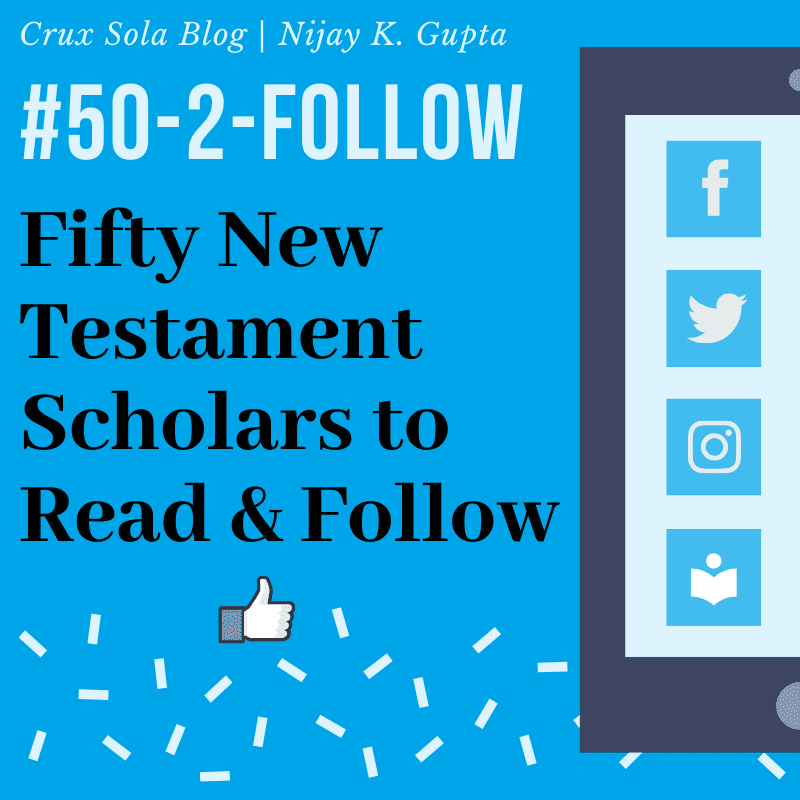
Introducing
Prof. David Downs
Explain why you love teaching and/or writing, and why it brings you vocational satisfaction.
I enjoy helping students engage the historical, literary, cultural, ethical, and theological dimensions of the New Testament and other early Christian literature so they can become more careful and informed interpreters of these texts. One reason that teaching brings me such great vocational satisfaction is that I love to learn new things. Working with insightful and motivated students encourages me to keep learning, and quite often students teach me things or challenge me to rethink my assumptions. I have recently joined the faculty at the University of Oxford, and this really is a dream job for me. I have the privilege of working at a world-class institution with outstanding students and colleagues, unmatched access to research resources, and a robust learning community of those who study the New Testament. I regularly want to pinch myself because I get paid to do what I absolutely love—and I get to do it at an amazing university.
What is one “big idea,” emphasis, or theme in your scholarship that you hope impacts the way students and scholars read and understand the NT?
I share the conviction with a number of scholars that, in addition to careful and patient wrestling with the primary texts of the New Testament, faithful and even historical interpretation of the New Testament should also attend to the footprint that these texts left on the faith and practices of their earliest interpreters. In my book on almsgiving, for example, I try to tell the story of the notion that care for the poor can atone for sin, an idea that has roots in Jewish and Christian scriptures and that became quite popular in Christian literature of the second century and beyond. I try to make the case that this story cannot be told on the basis of the Bible alone, but must also engage second and third century readings of scriptural texts, not merely as a catalog of what early Christians said about their scriptures but as an important aspect of the hermeneutical enterprise. At the same time, the idea that the reception of scriptural texts in diverse contexts is a key aspect of their interpretation is not limited to the earliest Christian reception of the Old and New Testaments.
Some of the work that I have had the privilege of doing with my wife (an infectious diseases physician) and a team of Tanzanian colleagues on the relationship between biblical interpretation and public health in Northwest Tanzania draws on these same insights to map how, for example, readings of the Bible shape attitudes about male circumcision as an HIV intervention or, in a current project, family planning practices.
Who is your academic hero and why?
Without a doubt one of my great academic heroes is Beverly Gaventa, my Doktormutter. She has modeled for me and for so many others what it looks like to be an excellent teacher who demands the best from her students and to be a scholar who places God and God’s actions at the center of her understanding of the Bible. I also had two teachers in college at Clemson University, Nancy Hardesty in Religious Studies and Lee Morrissey in English, who really inspired me, at a very formative time in my life, to love learning, in large part because they were both passionate about their own subjects. Nancy and Lee were fantastic teachers in the very best tradition of the liberal arts. Now as I take up a new position working with undergraduates for the first time in twelve years, I hope that I might be able to encourage among some of my undergraduate students the same love for learning that I grasped from Nancy and Lee.
Name 3 NT or Biblical Studies academic books that were formative for you as a student.
In my first year in college, I read George Eldon Ladd’s The New Testament and Criticism. Having been raised in a church context in which critical biblical scholarship was not highly valued, Ladd’s book was for me a very helpful introduction to the critical study of the Bible. In seminary, Richard Hays’s Echoes of Scripture in the Letters of Paul was a book that I loved (especially as an English major) and that shaped my burgeoning interest in Paul’s letters. Finally, I remember reading Peter Brown’s Augustine of Hippo: A Biography and being awed, not only at the depth of his knowledge but also by the clarity and power of his prose. He is a fantastic writer, and he helped me appreciate Augustine, too!
Read Downs’ Books
The Faithfulness of the Risen Christ: Pistis and the Exalted Lord in the Pauline Letters. Co-authored with Benjamin J. Lappenga. Waco: Baylor University Press, 2019.
Alms: Charity, Reward, and Atonement in Early Christianity. Waco: Baylor University Press, 2016.
The Offering of the Gentiles: Paul’s Collection for Jerusalem in Its Chronological, Cultural, and Cultic Contexts. Wissenschaftliche Untersuchungen zum Neuen Testament. Second Series 248. Tübingen: Mohr Siebeck, 2008. Reprinted: Grand Rapids: Eerdmans, 2016.
Follow Downs Online
Check out lots of free essays and articles on Downs’ ACADEMIA website
If you ran into me at SBL, and you didn’t want to talk about New Testament studies, what would you want to talk about?
I guess my main hobby is running, which is something that my wife and I enjoy doing together when we have the chance. So I’d be happy to chat about running, including professional runners who are much, much faster than me. I also follow NBA basketball. I’m a fan of the entire NBA, not any one team in particular, although sadly because of the time zone difference I haven’t renewed my League Pass subscription since we moved to England this past summer. I used to really enjoy playing basketball, but now I’m old enough that I’m afraid I’ll suffer a major injury if I spend too much time on the court. So I mostly cheer for my kids instead.
What is a research/writing project you are working on right now that you are excited about?
I’m currently working on the volume on 1 Clement for the Oxford Apostolic Fathers series. Admittedly, there are probably only a few dozen people in the world who care very much about 1 Clement. But I think it’s a fascinating text that offers an important window into the Christian movement in the second century.

